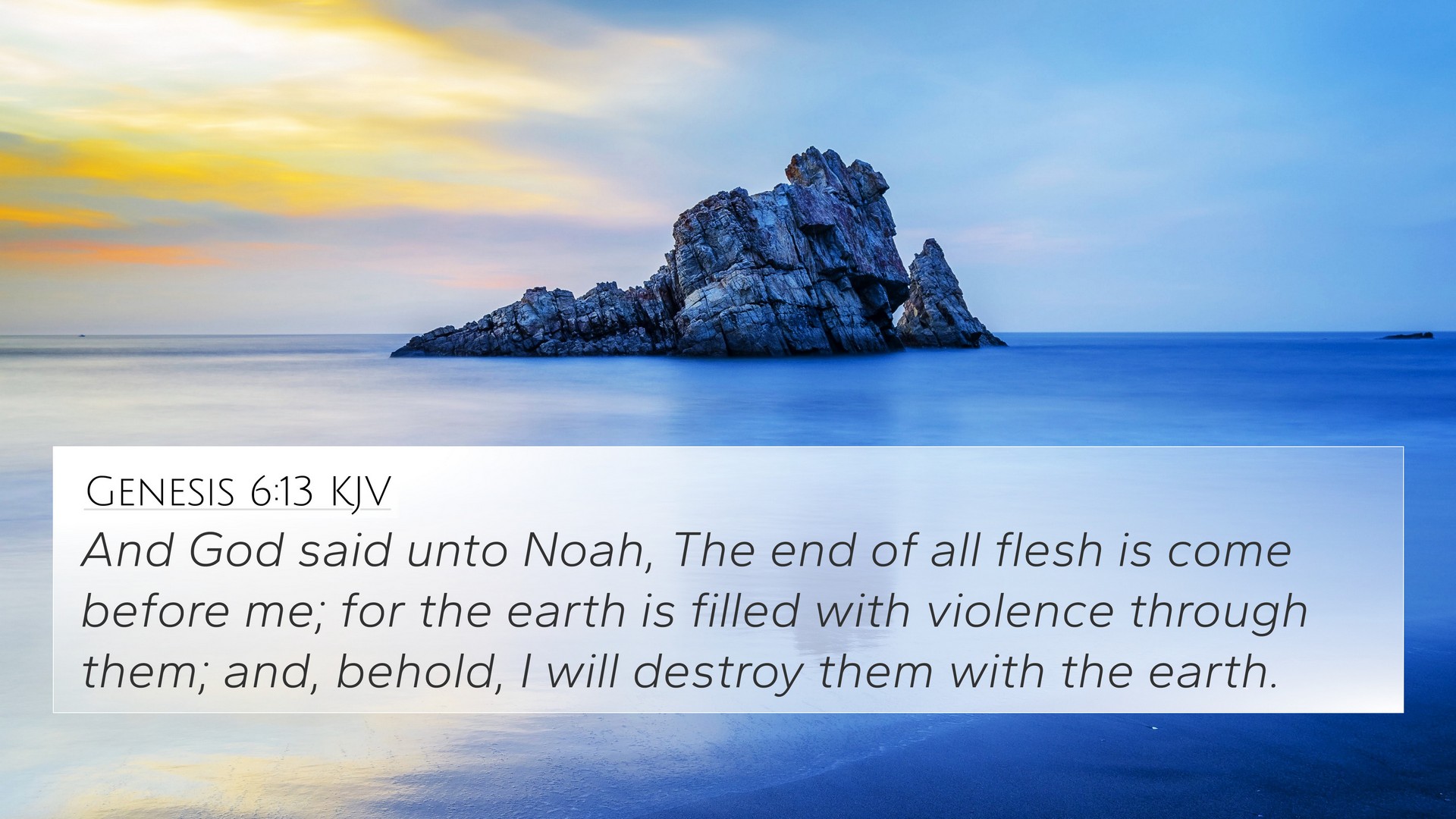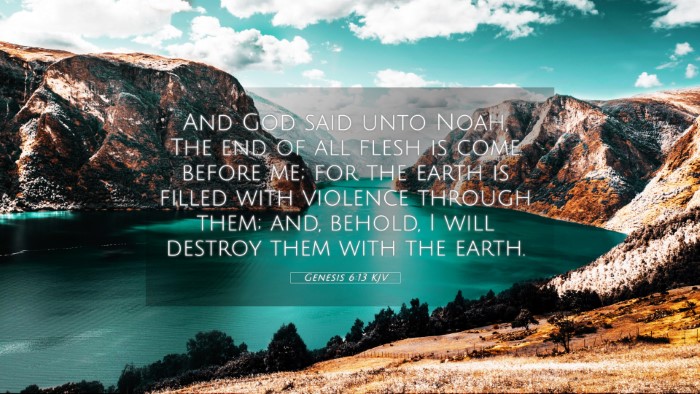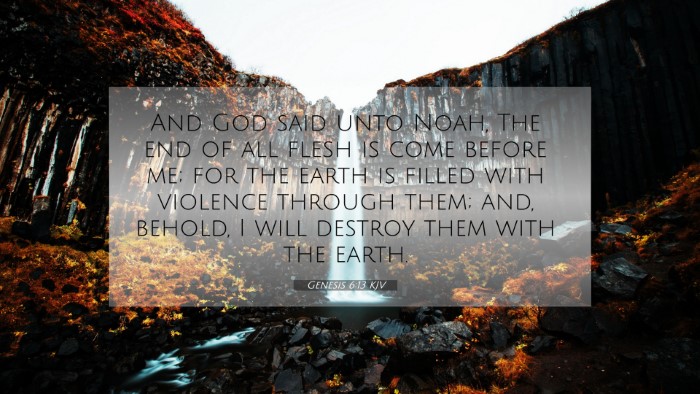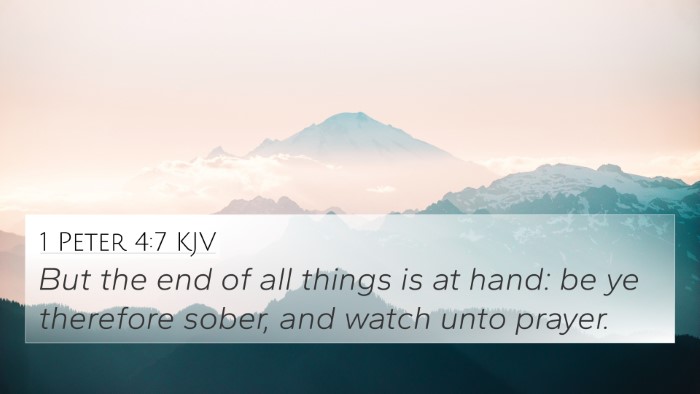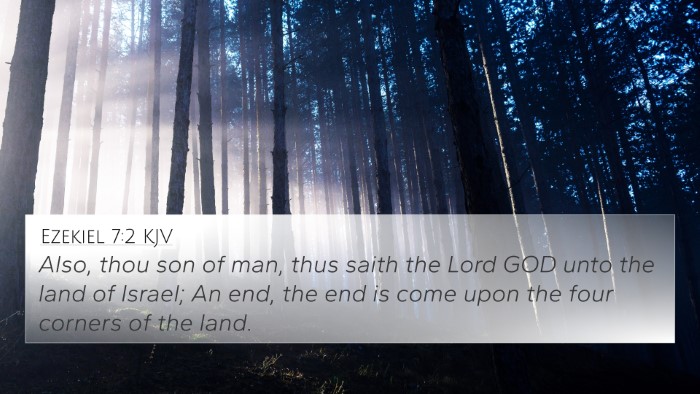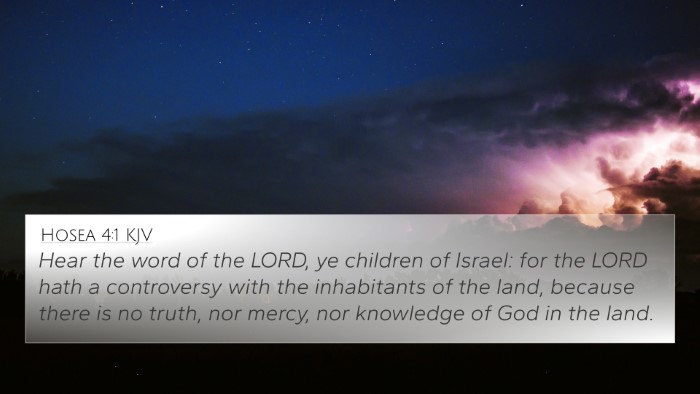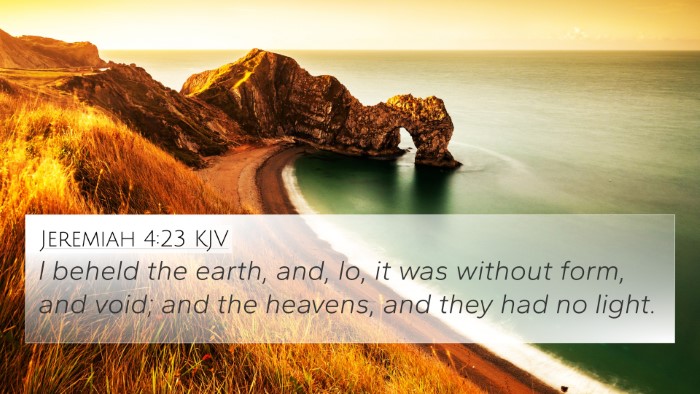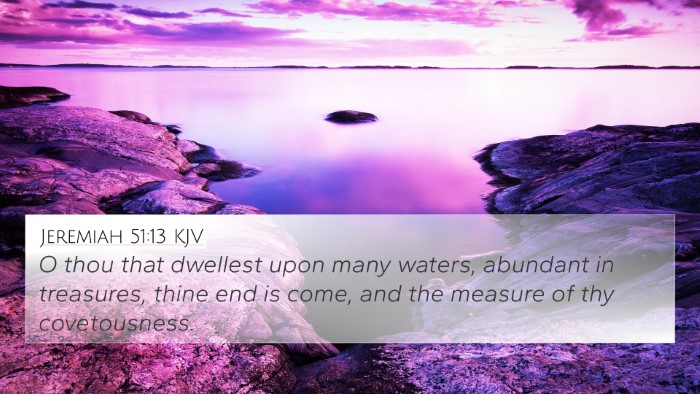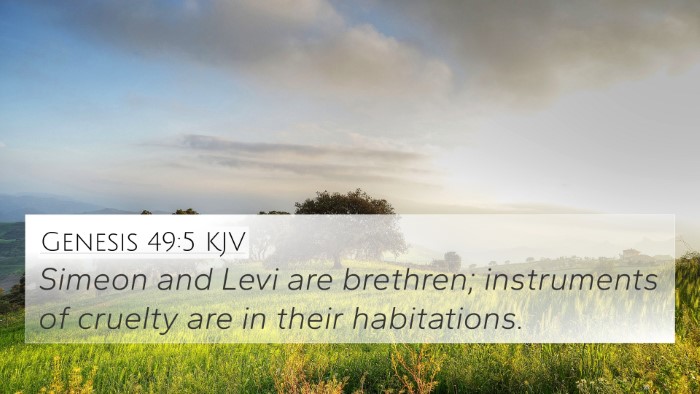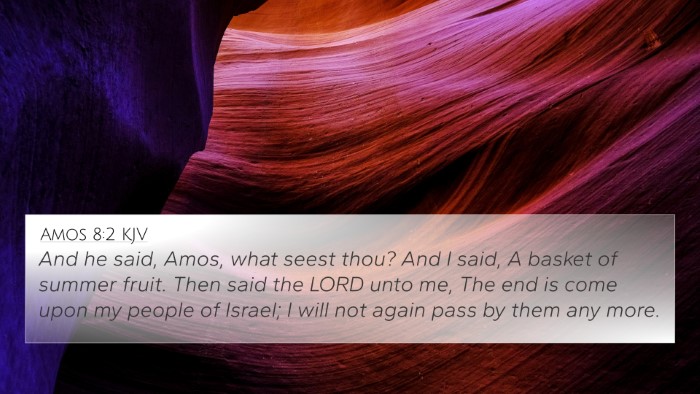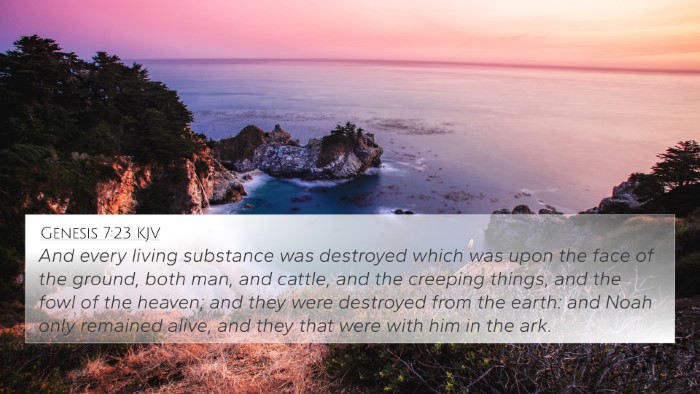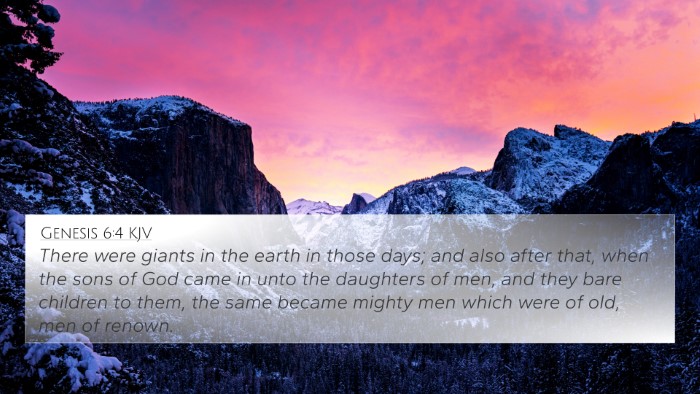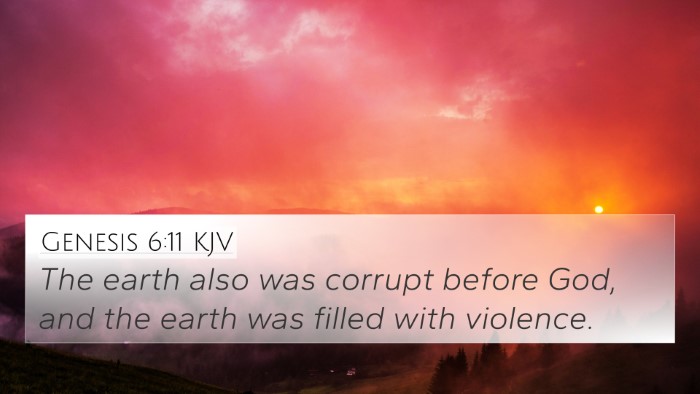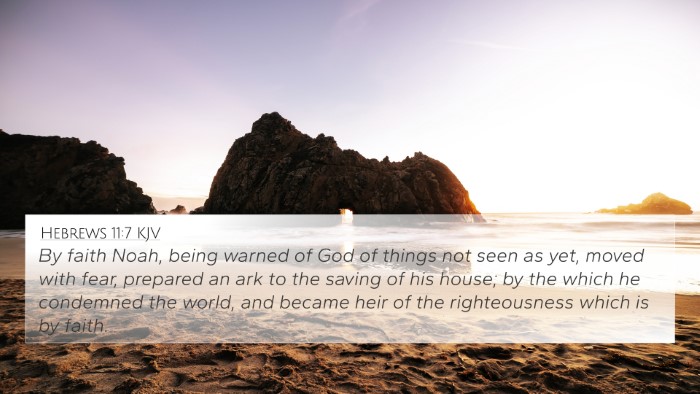Genesis 6:13 - Summary and Commentary
Verse: Genesis 6:13 states, "And God said to Noah, 'The end of all flesh has come before Me, for the earth is filled with violence through them; and behold, I will destroy them with the earth.'" This verse highlights a pivotal moment in the biblical narrative where God declares His intention to bring judgment upon a corrupt world.
Meaning of Genesis 6:13
The essence of this verse can be understood as God's response to the pervasive sinfulness and corruption that had spread throughout mankind. The context of this verse is set before the Great Flood, a cataclysmic event that serves as an expression of divine judgment.
Insights from Public Domain Commentaries
-
Matthew Henry:
Henry emphasizes the gravity of human wickedness by noting that God observes the earth filled with violence. He interprets this declaration not merely as a judgment but as a divine lamentation over the state of humanity. God's decision to destroy is rooted in His holiness, declaring that He cannot allow such corruption to persist unpunished.
-
Albert Barnes:
Barnes comments on the unprecedented nature of the judgment that God is about to execute. He notes that this is a definitive statement from God, signaling that the moral decay had reached a point of no return. Barnes also explains that the "end of all flesh" signifies a reset of creation, indicating that the flood will cleanse the earth of its evil.
-
Adam Clarke:
Clarke provides insight into the language of God's pronouncement. He points out the dual aspect of God's nature—His love for humanity and His righteousness. The verse serves as a stark reminder of God’s justice, where His patience has been exhausted by mankind's sin, leading to the necessity of a radical solution.
Thematic Connections and Cross-References
Genesis 6:13 is not an isolated text; it resonates with various scriptures that reflect upon God's judgment, human sinfulness, and divine intervention. Here are 10 related Bible verse cross-references:
- Genesis 6:5-7: These verses detail the extent of human wickedness and God's grief, revealing the reasons for the impending flood.
- 2 Peter 2:5: This verse refers to God saving Noah and condemning the ancient world, highlighting the perpetual theme of salvation amidst judgment.
- Matthew 24:37-39: Here, Jesus draws parallels between the days of Noah and the coming judgment, serving as a warning for generations to be vigilant.
- Romans 1:18-32: Paul discusses the wrath of God against ungodliness, echoing the sentiments of Genesis regarding human depravity and divine retribution.
- Ezekiel 18:30: This passage calls for repentance from evil ways, resonating with God's call for humanity to turn from their violent actions.
- Hebrews 11:7: Noah's faith and obedience are commended as he prepared for what was not yet seen, illustrating the importance of trust in God’s warnings.
- Isaiah 54:9: The flood is described as a time of wrath, but God promises never to destroy the earth in such a manner again, showcasing His mercy.
- Revelation 21:1: This verse looks forward to a new creation, signifying God's ultimate plan beyond judgment, resonating with the themes outlined in Genesis.
- Jeremiah 51:25: God’s promises to judge nations further illustrates non-Israelite corruptions akin to those seen in Noah's time.
- Luke 17:26-27: Similar to Matthew, this also mentions the days of Noah, serving as a reminder of God’s historical judgment and future return.
Concluding Thoughts
The message of Genesis 6:13 transcends its immediate narrative, reflecting on broader theological truths about sin, judgment, and redemption. The interconnectedness of scripture provides a rich tapestry for understanding God's dealings with humanity across different eras. As we engage in cross-referencing Biblical texts, we find ourselves uncovering deeper insights into the nature of God, His holiness, and the significance of Noah's story as both a warning and an illustration of divine mercy.
If one desires to further explore cross-referencing Bible study methods, employing tools such as a Bible concordance or a Bible cross-reference guide can additionally enhance the study, uncovering links and themes that weave through the fabric of Scripture.
